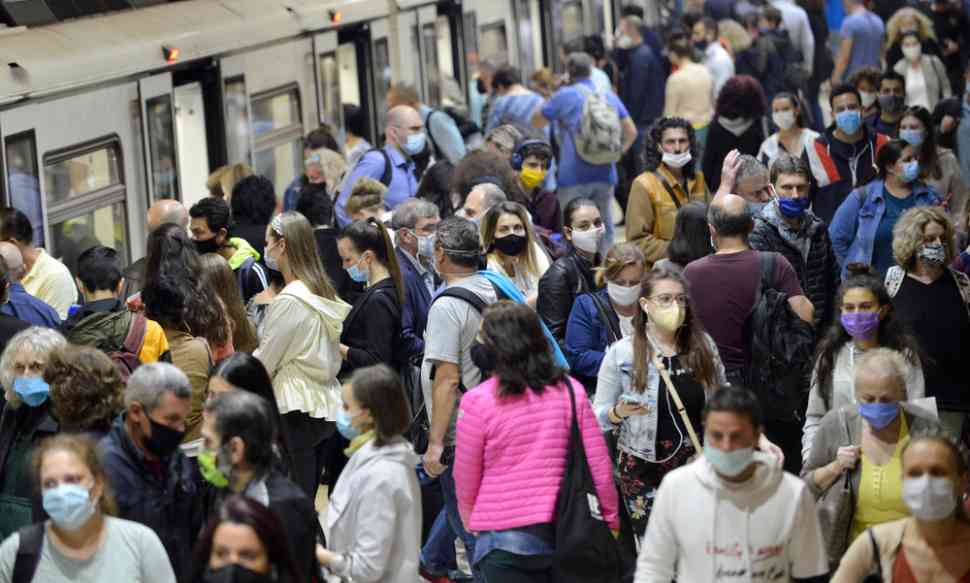An Alternative View On The Pandemic’s Contribution

Our recent experience with the pandemic has given us valuable lessons on what matters and how we can prioritize things. It also showed us how we could organize our business to keep it sustainable and adjust to the new financial landscape. However, while we were focused on how to survive and how to get used to the hard restrictions that kept us away from each other, we did not take a moment to think of what the virus was doing at the same time. We evolved, but so did the virus, and its evolution was similar to all viruses’ evolution. Let’s see how this story went and what we can learn from that.
As time went by, the virus changed its structure and functions. Being able to change is a lesson we have all learned since adjustment is the first rule to surviving in a world that changes. Still, how, in particular, did the viruses change? Practically, it became less deadly and increased its ability to spread. Let’s see how the virus benefited by becoming weaker. The gist of the virus’ behavior is not approached as we would imagine. Strength is not always conceived in the way we have learned. You see, the virus never intended to kill us in the first place.
On the contrary, the corona wants us alive to be able to survive and reproduce. We are like ”his” home, supermarket, and means of transportation. Our bodies conveniently provide everything the virus needs to survive. The virus cannot survive away from us for more than a few hours. Therefore, killing us is not an option. While we consider the disease a hostile enemy, the virus considers us friends. Like the spoiled child of a generous family who wants to take every toy they see from the store, the virus wants to ”eat” so much from our body that it finally manages to destroy us.
For that reason, biology had to find an answer. Many viruses have become weaker through the years in order to survive. Think of HIV and how dangerous it was when it first started. Campaigns to raise awareness were designed, and people were in constant fear of getting in touch with people who carry that deadly disease. Today, this is history, and honestly, no one seems to care. If you think about it, this is a similar behavior to most humans regarding their relationship with nature. Mother earth is our home. However, we do not treat it with respect and gratitude. It is only when the planet is in danger that we are alarmed and consider our actions and lifestyle. Other than that, if it was up to us, we would want to consume every source of the planet to live for ourselves. We would not consider that we are constantly interacting with every living creature. In other words, we, too, behave like parasites and do not always ”play” peacefully with the rest of the ”kids” on this planet.
Therefore, viruses adjust in a way that they eliminate their deadly effects to allow us to live longer. Their benefit is that they get to live longer and reproduce. At the same time, another smart advantage comes along. As viruses are not so annoying and do not kill us so quickly, we also have a more social lifestyle. This means we are strong enough to get out of bed and walk in the city. While we do that, we help the virus to spread to other people and finally ”conquer” the world. After all, we finally learned to live together. Humans and viruses manage to cooperate in a completely friendly relationship that serves the interests of both. They become more friendly, and we become more open. Nature works in similar mechanisms in most situations. We are just unable to detect them because we are absorbed by dealing with other stuff that seems more alarming each time. Yet if we pay attention and ”hear” the lessons that appear on our way, we can gain the wisdom that is so necessary to help us thrive and live happily.
Have you read?
Building Bridges for Empathy: Key Considerations for Leaders by Bonnie Low-Kramen.
Small Business Ideas You Can Start Today.
How to Redesign an Existing Team to Maximize Success by Kevin Eikenberry.
Reconnect With Nature at Jetwing Surf in Arugambay by Veidehi Gite.
These are the world’s trendiest countries, 2023.
Bring the best of the CEOWORLD magazine's global journalism to audiences in the United States and around the world. - Add CEOWORLD magazine to your Google News feed.
Follow CEOWORLD magazine headlines on: Google News, LinkedIn, Twitter, and Facebook.
Copyright 2025 The CEOWORLD magazine. All rights reserved. This material (and any extract from it) must not be copied, redistributed or placed on any website, without CEOWORLD magazine' prior written consent. For media queries, please contact: info@ceoworld.biz








